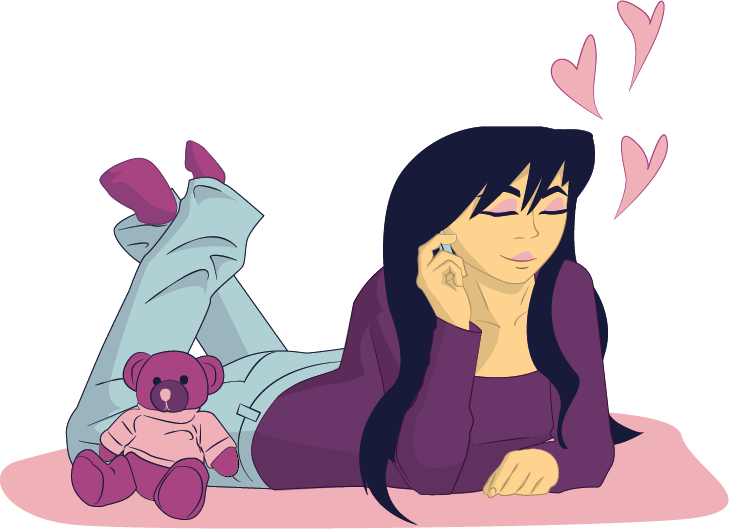How hookup culture shapes modern relationships
Hook up culture paired with technology has become destructive towards our generation.
February 27, 2023
The rise of technology has influenced all aspects of modern life. From working conditions to personal connections, there is nothing that hasn’t been altered in the Digital Age. For better or worse, dating and relationships are no exception.
Casual connections
Social media has become the most convenient way for many to find romantic connections. According to Pew Research Center, about one in five young partnered adults say they met online. Snapchat, Instagram and Tinder allow people to assess appearances of possible romantic partners and make a move from behind the screen. However, this accessibility has affected accountability. With the ability to keep options open and talk to numerous partners at once, there is less of an emphasis on commitment.
The phrase “hookup culture,” is used frequently in the modern age. In simple terms, it describes a community that views inherently romantic acts as casual and interchangeable, putting emphasis on being emotionally unattached to partners, keeping options open, and avoiding commitment. Although these standards are considered by many to be widely unrealistic, the uprise of hookup culture seems almost inevitable. “Now, [relationships are] mostly just [about] looking for potential hookups, or trying to find people to talk to out of boredom. It’s not really a true connection thing anymore,” freshman Roya Hansen said.
Casual connections are on the rise. The “no strings attached” mentality aims to detach physical connection from an emotional one. “Obviously, I do like the idea of [no strings attached] because that works for some people, but I think we are at a very impressionable age where we’re not super mature,” senior Helen Schilling said. “In my life, between me and my friends, I don’t think that ever works.”
While casual methods work well for some who are able to keep their feelings in check, some believe it to be unrealistic. “No strings attached is impossible. Sex is an inherently emotional act,” senior Maclain Everson-Rose said. “You can’t just go back to just being friends or not caring.”
Steering clear of commitment
According to the Pew Research Center, young adults and high schoolers seem to be veering away from relationships in general. Over half of single young adults are not currently looking for a relationship for reasons including different priorities, preferring to be single, or being cautious about putting themselves out there.
This sentiment holds true at Edina High School. “As a ninth grader, people don’t take romance seriously, because they go into things with the mindset that it’s not going to be forever. Nobody’s really dating to marry at this point in life,” Hansen said.
High school poses an entirely separate issue for dating. The lack of maturity and permanence leads to some people steering clear of the dating scene until college. “I just don’t think you’re at the stage of maturity in your life where you can handle a super long, committed, relationship,” Schilling said. “You have a lot of emotions going on. But that being said, I think you should still date in high school in order to experience what you like and what you do not.”
For those who are in committed high school relationships, social media can create other sorts of problems. “The fact that you can have a relationship offline or online makes you always be in a relationship because you always have your phone on,” Everson-Rose said. “You can’t just say I’m going to disconnect without it being like, ‘Oh, I want to break up with you.’ So that kind of constant presence of a relationship is very stressful. You can’t escape it.”
The pressure of comparisons
Social media has become Gen Z’s primary source of connection. The ability to share snapshots of life is appealing, especially when everyone else is doing it. The constant connectedness and life updates from peers poses other challenges. “I think people start to compare themselves to what they see on the screens or behind the screens,” EHS math teacher Gavin Pratumwon said. “And as we all know, what’s on our screens and what’s behind them might not always be true.”
This inherent tendency to compare relationships and situations to others can generate a pressure to conform, whether it be the urge to find a relationship to keep up with peers, or stay single to fit in. “With certain apps, teens are rushed into doing things, like relationships or being intimate that they are not necessarily ready to do,” senior Helen Schilling said. “It can become a big problem, especially if you’re not ready for those things.”
Sexualization from a young age.
Along with relationships, the internet has created an environment where sexual encounters are more accessible and normalized. “The internet has allowed people to be able to send nudes over Snapchat and just be able to flirt with people anytime a day,” Everson-Rose said. “It’s given us the ability to stay sexually active distantly.”
Sexualization over social media is reaching younger demographics. 50 percent of Snapchat users are in their teens, according to Statistica. The American Psychological Association Task Force on the Sexualization of Girls examined the effects of sexualization on girls and identified a number of detrimental effects, including diminished cognitive function, deteriorated physical and mental health, inflated sexual expectations, and reductionist views of women as sexual objects.
The way people perceive love, and interact romantically, has naturally changed amongst generations. “In general, everyone has lost true human connection. And I think especially [with love] where you’re being very vulnerable, you should communicate in person, rather than online,” Schilling said. “If we’re going to have a fight, or an important talk, it’s not going to be online, it’s going to be in person.”
No matter how dating has evolved, there is a strong belief that high school students should have autonomy when it comes to relationships. “There’s a beauty and a danger to letting romance be so free in high school, but I think ultimately it’s good that people are exploring themselves in this way,” Everson-Rose said. “Right now we can make mistakes, and develop opinions on relationships and life to become a better person down the road.”





